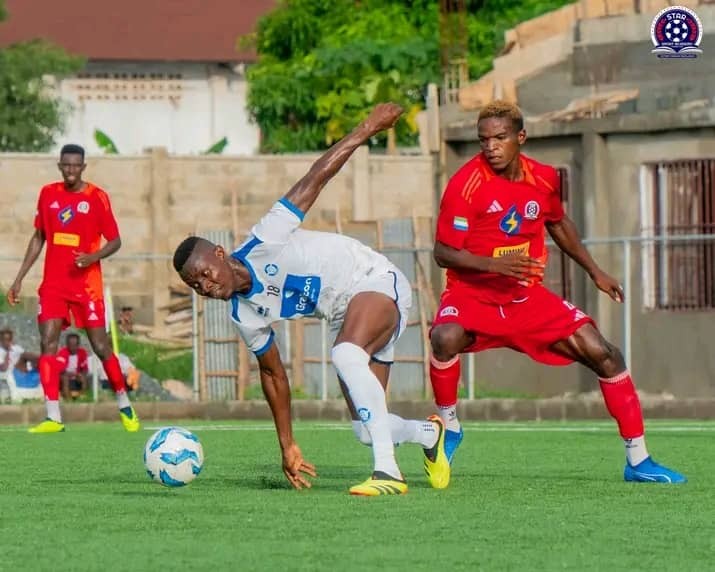By Kelfala Kargbo
Freetown, 18th August 2025 – Sierra Leone’s ‘Leone Rock Premier League’ has over the years emerged as a key source of employment for especially young people. These include players and officials, who are expected to earn regular salaries as part of the country’s growing football economy.
“During this year’s Premier League, more than a thousand people will be employed across different sectors; players, officials, support staff and vendors,” says Mohamed Benson Bawoh, Acting Secretary General of the Sierra Leone Football Association (SLFA), adding that each team would register up to 40 players, all expected to earn a regular pay.
But behind the optimism, questions persist about how regular and how fair those salaries actually are. Speaking to Truth Media, several players shared troubling accounts of low wages and the absence of social security protections like NASSIT. One FC Kallon player, who requested anonymity, said he earns slightly above the national minimum wage of Le800, but often goes months without receiving any salary.
“It sometimes takes three to four months before I get paid. All we rely on is the daily transport fare of Le25 [a little over one dollar] after training,” he says. With many players living far from the Angola Field training ground, some in East End Freetown, others in Waterloo, the outskirt of Freetown. The cost of transportation alone is a burden. “Le25 and no salary for months demotivates us,” he adds.
International football continues to inspire young Sierra Leoneans to pursue the sport as a serious career. The recent signing of Juma Bah to Manchester City, followed by loan moves to French Ligue 1 clubs, has made headlines. Bah is set to earn Le5.9 billion annually, a stark contrast to the Le800–Le1,200 salaries paid to local players.
Yet, the financial reality for many players remains grim. Mohamed Kargbo, a Port Authority player, confirmed he earns Le1,200 monthly. But, must queue at the finance office for physical payment. “There’s no bank transfer. Just cash,” he says.
Former Freetonians SLIFA coach Kabutu Sheriff expressed doubts about players receiving NASSIT contributions. “I don’t think players have NASSIT,” he said. “Some are paid below Le800, and salaries are irregular it takes months.”
Ibrahim Kamara, Head of Media and Marketing at SLFA, clarified that the association does not oversee internal club operations. “Selling and paying players is not the business of the Association,” he said. Kamara acknowledged that SLFA has no data on player wages and that no formal complaints have been made by players or their agents.
All Premier League clubs are registered establishments and under the NASSIT Act of 2001, they are legally required to pay social security contributions for contracted employees. Employers must deduct 5% from workers’ earnings and contribute an additional 10% themselves.
Abdul Barrie, Regional Coordinator of NASSIT, confirmed that any operating establishment is bound by law to fulfill these obligations. “We need to establish if Premier League clubs are employers. If they are, they must register and pay NASSIT for their employees,” he said. Barrie added that penalties for non-compliance are outlined in the NASSIT Act No. 5 of 2001 and that discussions with the Premier League Board are underway.
While the Premier League promises jobs and growth, the testimonies of players paint a different picture one of delayed salaries, low wages and missing social protections. As football grows into a national industry, the question remains: will the system evolve to protect those who make the game possible?









